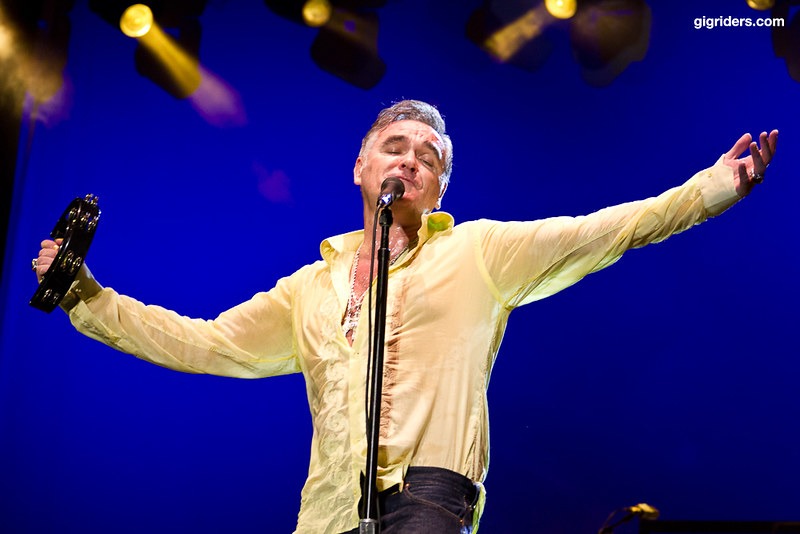How much does mixing pop and politics matter?
“Mixing pop and politics he asks me what the use is / I offer him embarrassment and my usual excuses.” Whilr Billy Bragg’s lyrics describe a culture of apathy towards politics in the music industry, how much does an artist’s political views matter to their fans?
Mumford and Sons banjo player Winston Marshall recently quit the band to ensure they don’t receive abuse for his support of a right-wing author. It appears, then, having opinions acceptable to fans is becoming increasingly important in an age where opinions are easily vocalised and shared on social media platforms.
Yet would fans of Mumford and Sons stop listening to music they enjoyed due to the opinions of one band member? Fans of The Smiths have faced a similar dilemma when it comes to the questionable trajectory lead singer Morrissey’s political views have taken. Counting myself among their number it’s safe to say despite strongly disagreeing with Morrissey’s latest political ramblings I will never stop listening to The Smiths.
Perhaps this has been made slightly easier with The Smiths having split all the way back in 1987, creating a distance between the musician and the music produced by the band already. Both The Smiths’ guitarist Johnny Marr and Nick Cave have said Morrissey’s political views don’t affect his past music.
I imagine little crossover between those who agree with the sentiment of The Smiths and those who continue to share the same views as Morrissey
Or maybe it’s the politics of The Smiths’ music that makes it easier to overlook Morrissey’s contemporary political stance. The anti-establishment message that clearly emerges from their music appealed and continues to appeal to their listeners today with, I imagine little crossover between those who agree with the sentiment of The Smiths and those who continue to share the same views as Morrissey.
But most probably it’s the sheer brilliance and sound of the band which continues to keep their legacy from being tainted by the political views of one of their members. This is also the case even for artists still at the peak of their output and influence and not just old stars clinging onto relevance through headlines.
Kanye West, for example, has come out in support for Donald Trump on a number of occasions and has also tweeted in support of conservative author and activist Candace Owens, who has criticised the Black Lives Matter movement. Yet, despite these well-documented views and in some cases a dislike for the man himself, millions remain fans of his music and sound.
While these opinions are troubling for fans, who may be less willing to support these artists as a result, the quality of music produced by many artists provides impetus enough to continue listening.
I imagine very few supporters of Thatcher will be found humming to the tune of ‘There is Power in a Union’ while tidying their flower beds on a Sunday afternoon
Perhaps “continue” is the key word there. Should I hear an artist’s political views were antithetical to my own before I had heard their music I would certainly be less inclined to listen. Conversely, I would be far more likely to listen to artist who has been associated with a policy or idea I support.
I first encountered the music of left-wing activist Billy Bragg on the soundtrack to Pride, a film about solidarity between striking miners and LGBT activists, far more likely to be watched by those with left leaning views. Hence the political opinion of the artist matters most to listeners who are new to their music, particularly those who may be more attracted to the artist for having views they themselves share.
Rational or not, sympathetic political opinions will always make people more predisposed to be accepting of music. This is especially the case when their political views are reflected in their lyrics. I imagine very few supporters of Thatcher will be found humming to the tune of ‘There is Power in a Union’ while tidying their flower beds on a Sunday afternoon.
Well-established musicians with an existing fan base are likely to be afforded the most leeway for their political leanings. With an ever-growing public knowledge about the private lives of musicians as the dissemination of information expands, it is as fans look to expand their music knowledge that this information regarding the political opinions of artists matters most.

Comments